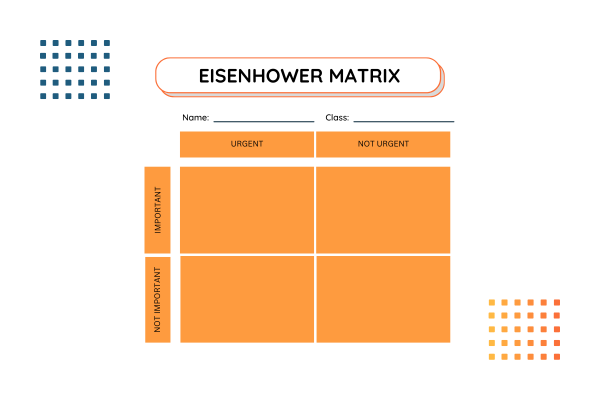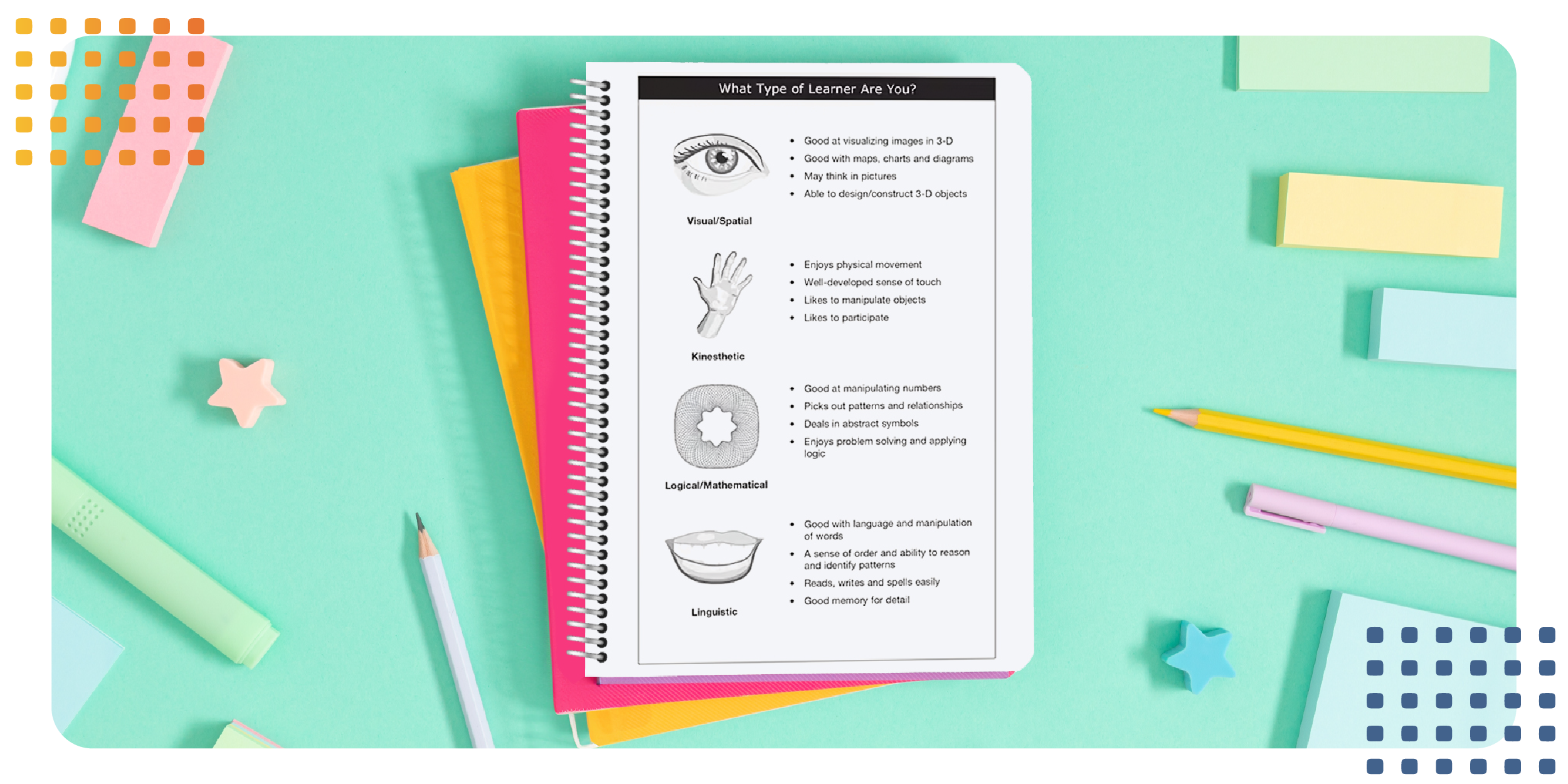Students benefit significantly when they manage their time wisely as it teaches them responsibility and can enhance their academic performance. But often students need guidance to make the most of their time. The great news is that there are several ways you can help your students get more structure in their day.
By employing strategic tools and techniques, students can optimize their productivity and maintain a balanced lifestyle. Here are some key strategies to help students manage their time effectively:

Time Blocking Techniques for Academic Success
Time blocking is a powerful time management tool for students that involves dividing your day into specific blocks of time, each dedicated to a particular task or activity. Here are a few ways to implement time blocking for academic success into your school or classroom:
Identify Key Tasks
Encourage students and teachers to create a list of all the tasks they need to accomplish, including homework, study sessions, extracurricular activities, and personal tasks.
Include Breaks
Schedule short breaks between time blocks to rest and recharge. Use techniques like the Pomodoro technique, which includes 25 minutes of focused work followed by a 5-minute break.
Stick to a Schedule
During focus and study times, focus solely on the assigned task. Avoid the temptation to attempt multitasking and minimize distractions to maximize productivity. Consider the use of tools like Pomodoro timers and social media blocking apps to prevent distractions. At the end of each week, review your time blocks to see what worked and what didn’t. Adjust your schedule as needed to improve efficiency and accommodate any changes in your workload.

Prioritizing Tasks: The Eisenhower Matrix Method
Prioritizing tasks effectively is crucial for managing your time well. The Eisenhower Matrix is a time management tool for students that helps categorize tasks based on their urgency and importance:
1. Urgent and Important
Tasks in this category require immediate attention and are critical for achieving your goals. Examples include upcoming exams, assignment deadlines, and urgent project work. These should be your top priority.
2. Important but Not Urgent
These tasks are essential for long-term success but don’t require immediate action. Examples include studying for future exams, long-term projects, and skill development activities. Schedule these tasks into your routine.
3. Urgent but Not Important
Tasks that are time-sensitive but don’t significantly contribute to your major goals. Examples include some emails, minor chores, and certain social activities. Try to delegate these tasks if possible or limit the time spent on them.
4. Not Urgent and Not Important
These tasks have little to no value and can often be eliminated. Examples include excessive social media use, unnecessary meetings, and non-essential distractions. Minimize or eliminate these tasks to free up time for more important activities.

Balancing Extracurricular Activities with Studies
Extracurricular activities and academic responsibilities are essential for a well-rounded student life, but keep in mind that it’s important to balance both for optimal efficiency and performance. Here are some tips to help you manage both effectively:
1. Create a Master Schedule with Time. Blocked for Studying
Use a paper planner or digital calendar to map out your entire week, including classes, study sessions, extracurricular activities, and personal time. Having a visual representation of your commitments helps identify potential conflicts and plan accordingly.
It’s important to teach students to also set time aside for studying so they can reinforce what they’ve learned during class. Advise your students to block at least two to three hours of study time per class during the week. You should also encourage students to turn off their cell phones and put away their electronics so they don’t get distracted during their study time. They should also turn off desktop notifications to avoid interruptions if they must use their computers to study.
2. Set Your Important Priorities for the Day, Week, Month, & Semester
Deadlines are important for keeping track of when assignments are due. You can teach your students to track their assignments by using a calendar. You can even help them get started with a tangible printed calendar. By writing down due dates for assignments, they’ll be able to track and remember important deadlines as they learn about them. One way to keep students on track is by embedding your academic calendar into student planners. This will keep them aware of important test dates and campus events.
Determine which activities are most important to you. Academics should be a priority, but extracurriculars that contribute to personal growth and enjoyment are also valuable. Allocate sufficient time for both.
3. Limit Commitments Where Possible
On the one hand, high school and college are the perfect time to take advantage of extracurricular activities that can contribute to a well-rounded resume, active social life, and overall happier outlook on life. At the same time, you don’t want to overwhelm yourself with nonessential expectations during what should be a very productive season of your life.
Be selective about the number of extracurricular activities you participate in. Overcommitting can lead to burnout and negatively impact your academic performance. Focus on a few activities where you can make a meaningful contribution or which are most meaningful to you. This may include:
- Dedicated dinners with family or friends on specific days or special occasions
- Being involved in a particular activity, sport, or hobby that is productive or which contributes positively to your mental health
- Important health and wellness check-ins or opportunities for self-care
- Opportunities to add meaningful experience to your resume, such as an occasional volunteer opportunity in your community
4. Communicate with Teachers, Coaches, Advisors, & Mentors
If you’re struggling to balance your academic responsibilities and extracurricular activities, it’s important to reach out for support. Talk to your teachers, coaches, or advisors about your challenges. They can offer valuable guidance and practical advice to help you manage your time more effectively.
Additionally, they might be able to provide flexibility in your commitments, such as adjusting deadlines, offering extensions, or helping you prioritize tasks. These mentors have experience and insight that can help you develop strategies for maintaining a healthy balance, ensuring that you can succeed academically while still enjoying and benefiting from your extracurricular activities. Don’t hesitate to seek their help; their support can make a significant difference in your overall well-being and success.
5. Regularly Review Your Schedule
Finally, regularly review your schedule for the week and periodically assess your schedule to ensure you’re maintaining a healthy balance between academics and extracurriculars. Make adjustments as needed to stay on track and avoid overloading yourself.
6. Regularly Clean Your Study and Work Space for Mental Clarity
When your students schedule cleaning time, they can help keep their desks mess-free and organized. This makes it easy to focus during class time or after class ends when they’re focusing on completing homework.
You can teach your students to schedule time for cleaning by emphasizing why it’s important to make time to clean their desks. Help them establish a schedule, such as putting aside time on a weekly basis to clean their desk areas.

Tip: Help Them Become Self-Aware of Social Media Consumption
At the core of managing your time wisely is being self-aware of things that consume a considerable amount of your time, and social media often takes away from valuable study and learning time. Students often consume social media at high levels.
A Pew Research Center study found that 45 percent of U.S. teens are consistently online. A Common Sense Media study also found that social networking and video-chatting accounted for 26 percent of the 6.5 hours of media American teens consume every day on average.
That’s a significant amount of time that can take away from their education. You can help students limit their time on social media by first becoming aware of their use. Have them evaluate how much time they’re spending on social networks.
Encourage them to set some of that time away to focus on school work. For example, you can teach them to use a timer for social media time and one for school work time so they can be more productive.
Tip: Teach Priorities
Often the most productive students know how to prioritize their tasks. So, it’s crucial to teach students the value of prioritization. You can help them learn this by providing them with a syllabus that clearly identifies the weight of each assignment.
Discuss why focusing on one assignment over another assignment or test is important based on its weight for the final grade. Once they learn this, they can understand where to focus their time and effort when blocking study time.
Being able to manage time is essential for advancing not only in school but in life. Students learn to be more productive and efficient when they learn time management techniques. Thus, it’s critical to support students by helping them learn valuable time management skills. By using these techniques, you can help your students learn the skills they need to succeed in the classroom and beyond.
Request a Custom School Planner Quote or Sample Kit
Implementing these time management strategies can help students navigate their academic responsibilities and extracurricular activities effectively, leading to a more productive and balanced school experience.
Interested in finding out how custom school planners can work for your school? Request a quote or sample kit today to start your school’s journey towards reaching academic goals.